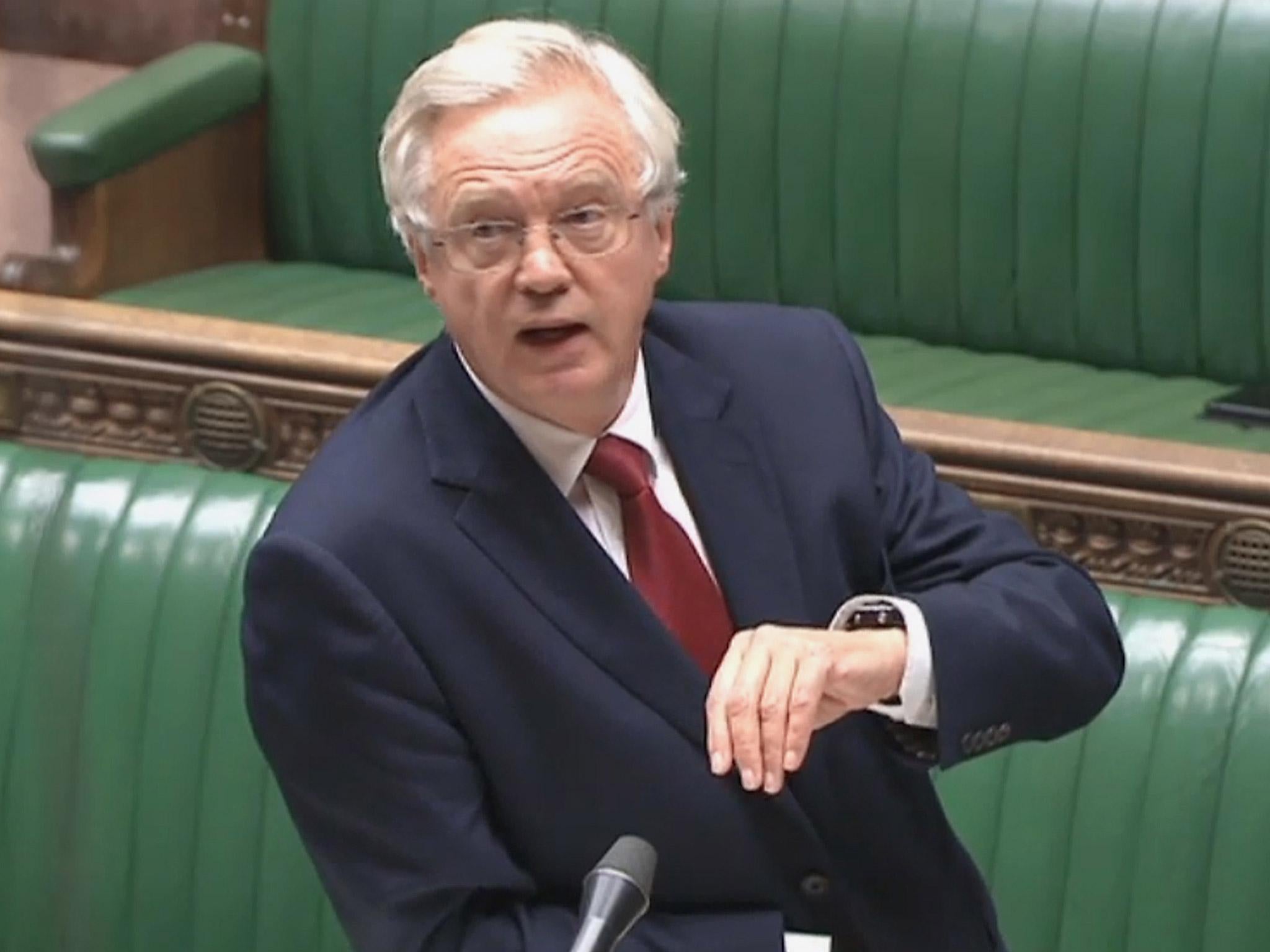Brexit: David Davis agrees that businesses face ‘cliff edge’ threat if no EU trade deal is struck by 2019
The Secretary of State of Exiting the European Union acknowledged the danger if companies are forced to ‘fall back on World Trade Organisation rules’

Brexit Secretary David Davis has admitted businesses face a damaging “cliff edge” if the Government misses its two-year deadline for striking a fresh EU trade deal.
Quizzed in the Commons, Mr Davis agreed with a Labour MP who outlined the dangers if companies are forced to “fall back on WTO rules” in 2019.
Earlier this month, business leaders – including the CBI and manufacturers’ body the EEF – wrote an open letter to ministers, making a plea for barrier-free trade with Europe to be preserved.
It warned defaulting to trading by World Trade Organisation (WTO) rules would leave 90 per cent of UK goods trade with the EU subject to new tariffs.
That would mean 20 per cent in extra costs for the UK’s food and drink industry and 10 per cent for car producers, the letter said.
During Brexit questions, Labour backbencher Emma Reynolds pointed out that other EU members had yet to agree to trade talks alongside the two-year Article 50 exit negotiations.
She said: “The truth is that business are concerned that we are going to have to fall back on WTO rules.
“What, therefore, is the Government and the Secretary of State going to do to avoid the cliff edge in March 2019, when we leave the European Union, possibly falling out of the EU single market and falling back on WTO rules?”
In reply, a bullish Mr Davis insisted that some of the other 27 EU nations were coming around to the idea of “parallel negotiations”, from early next year.
But he added: “She’s quite right that we need to conclude this within the two years to avoid any cliff edge.”
It is the first time a Cabinet minister has acknowledged the “cliff edge” threat if Britain is unable to reach agreement on new trading arrangements before Brexit is concluded.
The most likely way out is for Britain to negotiate transitional arrangements, possibly on a sector-by-sector basis, starting with financial services.
However, such an outcome would anger arch-Brexiteers, because it would involve paying billions into the EU’s budget for many years to come and – possibly – some continued freedom of movement for EU citizens.
In the Commons today, Mr Davis signalled that transitional arrangements are under discussion to protect the City, telling MPs that “all possible options” are being explored.
Several times, the Brexit Secretary refused to say whether payments to the EU would continue after 2019 – or whether Britain would also leave its customs union.
The calls for transitional arrangements for the City were led by the former Conservative Northern Ireland Secretary Theresa Villiers – a prominent Leave campaigner.
Stephen Metcalfe, another Tory Leave campaigner, urged Mr Davis to allow “an element of free movement”, to protect science.
Sir Keir Starmer, the Shadow Brexit secretary, demanded to know when the Government will publish its negotiating plans, but Mr Davis again refused to give a specific date.
Instead, he said: “Over the course of the coming period before the triggering of Article 50, much information will be put out about this and I think the House will be in no doubt what our aims and strategic objectives are.”
Join our commenting forum
Join thought-provoking conversations, follow other Independent readers and see their replies
Comments
Bookmark popover
Removed from bookmarks